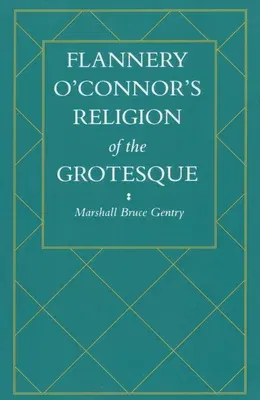Marshall Bruce Gentry
(Author)Flannery O'Connor's Religion of the GrotesquePaperback, 1 April 1986

Qty
1
Turbo
Ships in 2 - 3 days
In Stock
Free Delivery
Cash on Delivery
15 Days
Free Returns
Secure Checkout
Print Length
188 pages
Language
English
Publisher
University Press of Mississippi
Date Published
1 Apr 1986
ISBN-10
1578068657
ISBN-13
9781578068654
Description
Product Details
Author:
Book Format:
Paperback
Country of Origin:
US
Date Published:
1 April 1986
Dimensions:
22.86 x
15.24 x
1.09 cm
ISBN-10:
1578068657
ISBN-13:
9781578068654
Language:
English
Pages:
188
Publisher:
Weight:
281.23 gm

